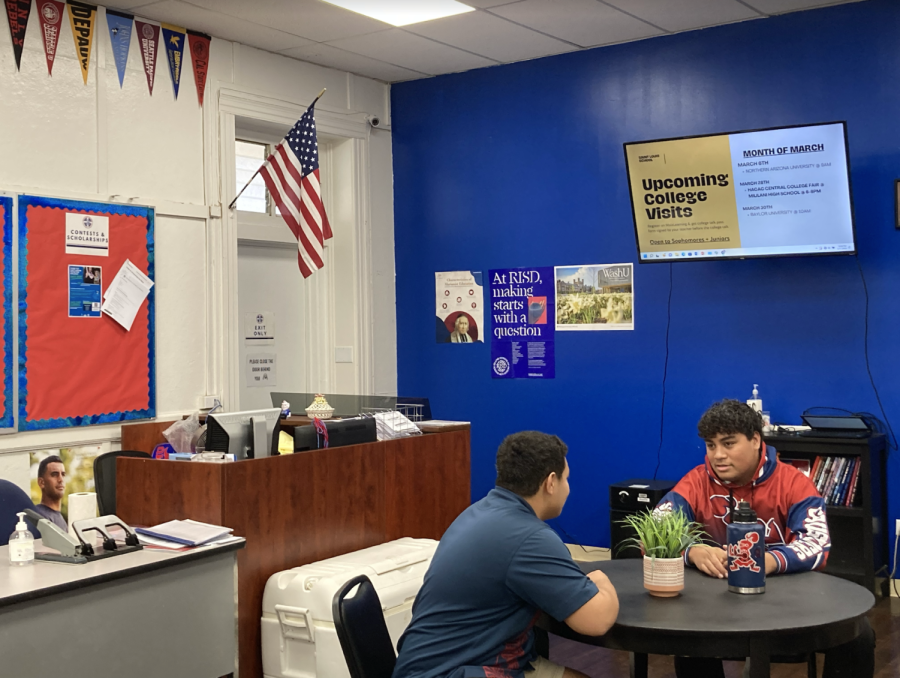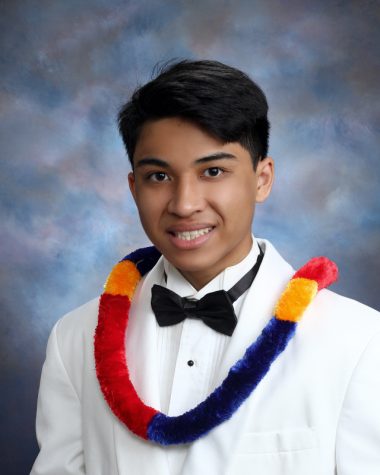Getting a head start on College
The college counseling office in the Learning Resource Center, posts upcoming visits from a variety of colleges and universities throughout the year.
March 1, 2023
Many Saint Louis seniors have been busy with SATs and ACTs, and knee-deep in college and scholarship applications since the start of the school year. Now, the underclassmen are beginning to understand the significance of the application process.
At this point in the school year, seniors who plan to further their education are receiving college acceptance letters and are busy completing applications for potential scholarships. They are very familiar with the application process now, but the same cannot be said for the majority of underclassmen who are next in line to begin the college application process. For them, there are some important things to know which make the application process simpler.
If students decide that college is right for them, the first thing they need to consider is where to apply. It’s essential for a student to research potential schools, so they know what they’re getting into and if it works for them. To assist students, the school works with students beginning in middle school, using the Maia online program. “I’m looking to see what majors they have, living costs, and the type of curriculum they have,” says Joshua Ito, a senior and NHS member. “I’m looking for schools that [offer] majors in criminology and forensics.”
Fortunately, some underclassmen have taken steps to better understand the college application process in advance. Sophomore Aidan Woodman has already begun to gather information. “I have looked at some of the applications and the [FAFSA],” says Woodman. “I think it is fairly easy if you [have] the information that they are asking for.”
Upperclassmen have help from Mr. Keenan Meyer, the school’s college counselor, who advises them throughout the application process. Meyer provides insight into the kinds of things colleges are looking for in applicants and what students should know when they apply.
“Colleges now, they’re looking for what they call a holistic approach, so they’re looking at the whole student,” explains Meyer. “[They’re] looking at extracurricular activities, they’re looking at your grades, your cumulative GPA, [and] the types of classes you’ve been taking since your freshman year.”
There are some college prep resources available for students in grades 7-11, primarily utilizing MaiaLearning, a site enabling students to “[discover colleges] throughout the country and even internationally, [in addition to] personality assessments or career searches based on personality and personal interests,” according to Mr. Meyer.
“The most useful thing that I would say for underclassmen [to know] when it comes to college applications,” adds Meyer, “is to really pay attention to the grades that you’re getting, [from] your freshman all the way up to your junior year because that’s pretty much going to make or break getting into colleges.”
Knowing what to look for and what to do throughout high school can make college applications a lot simpler for incoming seniors. Hopefully, Mr. Meyer’s advice and getting an early start in gathering information about prospective colleges will encourage others to start thinking ahead if they plan to further their education in college.



